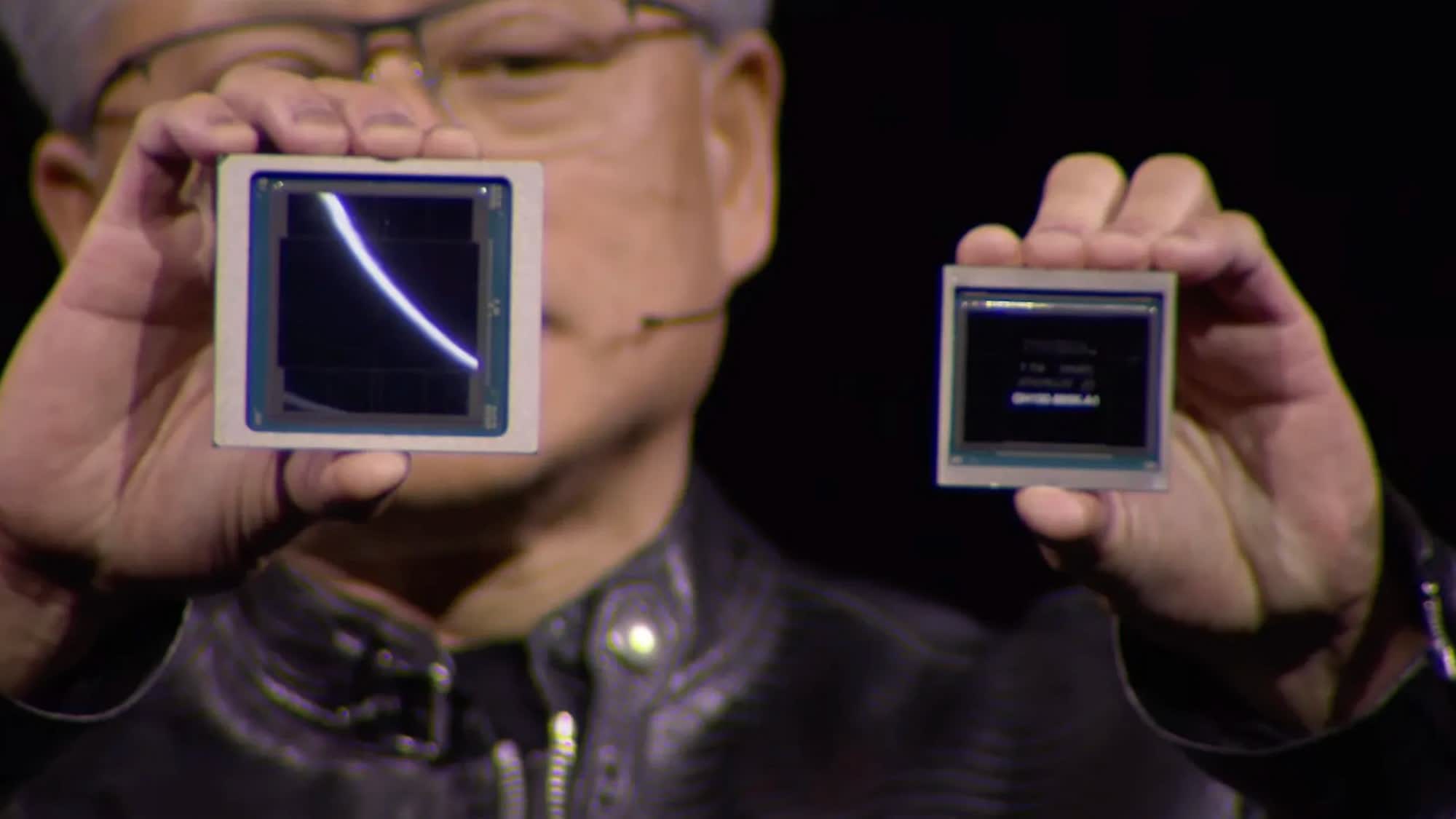What just happened? Nvidia has reported its fiscal first quarter earnings for 2024, surpassing Wall Street expectations and driving its stock to new record highs. The company's total revenue for the first quarter was $26 billion, up 18 percent from the previous quarter and an astonishing 262 percent from the same period last year, driven by increased demand for its AI and data center products.
GAAP earnings per diluted share were $5.98, a jump of 21 percent from the last quarter and 629 percent from last year. The growth in non-GAAP earnings was even more impressive, with the company reporting earnings per diluted share of $6.12, up 19 percent sequentially and 461 percent year-on-year. These numbers exceeded analyst expectations, as Wall Street had anticipated adjusted EPS of $5.65 on revenue of $24.69 billion.
Nvidia expects the positive trend to continue in the current quarter, projecting revenue of $28 billion, plus or minus two percent. This guidance is higher than the consensus analyst expectation of $26.6 billion. However, the company expects its adjusted gross margin to decrease to 75.5 percent in the current quarter, down from the record 78.9 percent in the last three months.

Nvidia also announced a 10-for-one forward stock split effective June 7, 2024. The quarterly cash dividend was raised 150 percent to $0.01 per share on a post-split basis and will be paid to all shareholders on June 18. Thanks to the stunning results, the company's stock was up six percent in after-hours trading on Wednesday and rose a further seven percent in pre-market trading on Thursday to over $1,000.
Nvidia's rapid growth is largely fueled by the global AI boom that saw the company reaching the coveted $1 trillion market cap in mid-2023. Once known for its gaming graphics cards, Team Green's GPUs are now the preferred hardware for many of the biggest names in the AI industry. The company has also played a major role in the metaverse and AR/VR landscape with its Omniverse platform.
Nvidia recently unveiled its Blackwell GPU platform, which promises to offer more horsepower and better efficiency than its older "Hopper" chips for generative AI processing. The company has remained tight-lipped about its next-gen gaming GPUs, but rumors suggest that Blackwell-based graphics cards for gamers will hit the market either late this year or early 2025.
